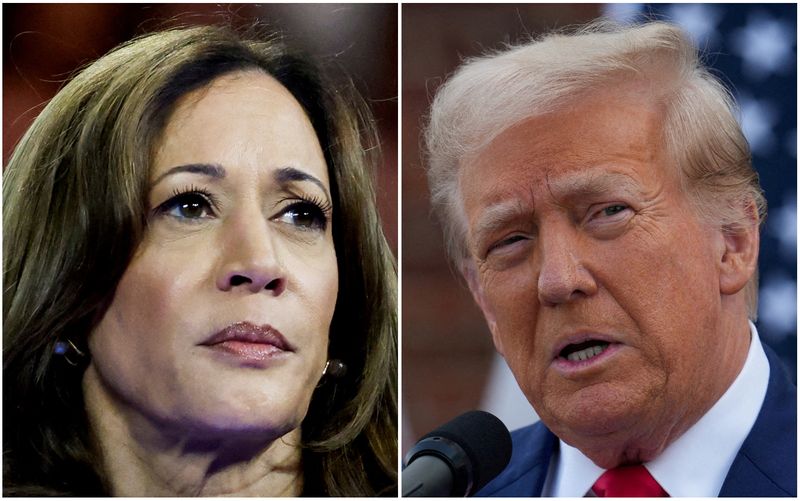Investing.com - Donald Trump is widely tipped to win the US presidential election, according to a survey of Investing.com readers on social media platform X, although national polls remain extremely tight with the ballot only one day away.
Among the 4,805 respondents to the poll, 77.8% said they expect the former president to secure a second four-year term in the White House. Meanwhile, 22.2% predicted a victory for Kamala Harris, the Democratic Party candidate.
The race between Trump, the Republican Party nominee, and Harris is neck-and-neck, particularly among the key battleground states that will likely factor into the outcome of Tuesday's vote.
Over the weekend, both Trump and Harris were campaigning furiously in these states, presenting their closing arguments in an attempt to persuade undecided voters.
Harris received a particular boost when a respected survey out of the traditionally conservative-leaning state of Iowa showed her leading Trump by three percentage points, due in large part to support among women.
Still, the contest remains virtually tied. A New York Times/Siena poll suggested that Harris was clinging to leads in Nevada, North Carolina, Georgia and Wisconsin, while Harris and Trump were even in the crucial swing states of Pennsylvania and Michigan. In Arizona, Trump holds a three percentage point advantage.
Sentiment is retreating and anxiety increasing among investors as markets gear up for the election and assess the quarterly earnings season, according to analysts at RBC Capital Markets.
In a note to clients on Monday, the analysts led by Lori Calvasina pointed to weekly data from the American Association of Individual Investors which showed a decrease in bullish feeling. So-called "fear" gauges, including the closely-watched VIX volatility index, also ended October at elevated levels, they added.
"We think the upcoming election and concerns about the possibility of a contested outcome are one reason for the recent moves higher in these indicators. We will be keeping a close eye on these after election day for signs of rising, peaking, or easing anxiety," the analysts said.
At the same time, recent commentary from corporate names posting their latest results suggested that the "tone seems more downbeat" partly due to the election clouding the broader outlook, the analysts noted.
"For the most part, companies are continuing to emphasize the uncertainty associated with the event and its contribution to more cautious customer behavior," they said.
